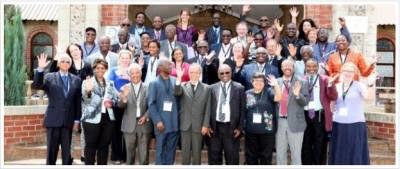


A five-year strategic plan will be implemented to guide science academy development in Africa in the future. This followed a workshop hosted by the Department of Science and Technology (DST) and the Academy of Science of South Africa (ASSAf) in February this year where 24 academies and other stakeholders were represented.
The plan succeeds the major 11-year African Science Academy Development Initiative (ASADI) led by the United States National Academy of Science US NAS and funded by the Gates Foundation that successfully and formally ends in 2015. The new programme is named Africa’s Science Academy Development Agenda (ASADA) in recognition of this second phase of academy development, which is distinguished from its predecessor in that it is conceptualised by the African academies of science.
The strategic goals of the plan are to:
The transition will take place under the guidance of an Implementation Task Team (ITT) that will revise the draft strategic plan and will send it to all African science academies for their response. The ITT will then formalise the document. The ASADA strategic plan is to be approved by the NASAC Board and NASAC General Assembly.
As the approval procedures are finalised, the ITT will continue to engage development partners and African science academies regarding support for the implementation of the plan. Ongoing activities between and amongst academies, as well as those spearheaded by the NASAC Secretariat will also continue to be implemented.
For more information, contact the Academy of Science of South Africa at: TOC@assaf.org.za